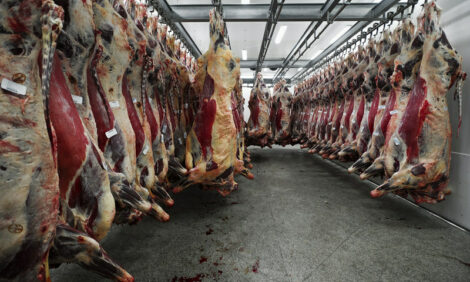



Hops Helps Reduce Ammonia Produced By Cattle
US - An Agricultural Research Service (ARS ) scientist may have found a way to cut the amount of ammonia produced by cattle. To do it, he's using a key ingredient of the brewer's art: hops.Cattle, deer, sheep, goats and other ruminant animals depend on a slew of naturally occurring bacteria to aid digestion of grass and other fibrous plants in the first of their four stomach chambers, known as the rumen.
The problem, according to ARS microbiologist Michael Flythe, comes from one group of bacteria, known as hyper-ammonia-producing bacteria, or HABs.
While other bacteria are helping their bovine hosts convert plant fibers to cud, HABs are breaking down amino acids, a chemical process that produces ammonia and robs the animals of the amino acids they need to build muscle tissue, according to Mr Flythe, who works at the ARS Forage Animal Production Research Unit (FAPRU) in Lexington, Kentucky.
To make up for lost amino acids, cattle growers have to add expensive and inefficient high-protein supplements to their animals' feed.
According to Mr Flythe, hops can reduce HAB populations. Hops, a natural preservative, were originally added to beer to limit bacterial growth.
Mr Flythe put either dried hops flowers or hops extracts in either cultures of pure HAB or a bacterial mix collected from a live cow's rumen. Both the hops flowers and the extracts inhibited HAB growth and ammonia production.
Mr Flythe and FAPRU plant physiologist Isabelle Kagan have completed a similar project with more typical forage. They recently identified a compound in red clover that inhibits HAB. Results of that study were published recently in Current Microbiology.
Mr Flythe also collaborated with FAPRU animal scientist Glen Aiken on a study in which hops had a positive effect on the rumen's volatile fatty acid ratios, which are important to ruminant nutrition.
TheCattleSite News Desk


